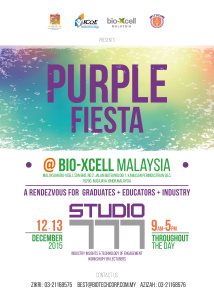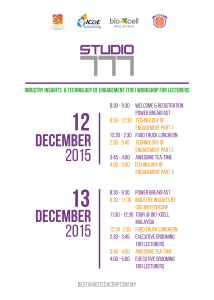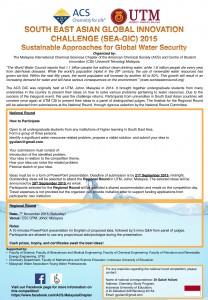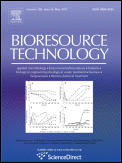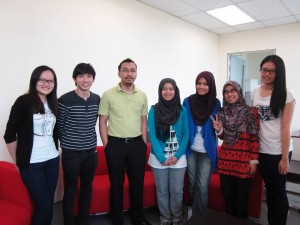A message from BiotechCorp to all students (UG and PG). Please join to know more about Bio-xcell and BiotechCorp. FBME students can refer to T02 Academic Office for more information and registration.
“Malaysian Biotechnology Corporation Sdn Bhd (BiotechCorp) together with Industry Centre of Excellence (ICoE) Biotechnology Cluster and BioXcell Malaysia Sdn Bhd will jointly organize an event called PURPLE FIESTA @ BIOXCELL MALAYSIA 2015.
PURPLE FIESTA is another career campaign to promote and educate the stakeholders on bioeconomy careers in Malaysia. There are various colour codes exist in biotechnology industry which reflects the fields in the industry; such as white for industrial biotechnology, blue for marine biotechnology, green for agricultural biotechnology and red for biomedical. Shades of purple inspires intellectual thought and achievement, therefore we would like to feature purple as the colour for talent and education in the bioeconomy industry. This fiesta is to enlighten the people particularly the students, graduates and lecturers with the career prospects in the bioeconomy industry. It will be held on 12 & 13 December 2015 at Bio-Xcell Malaysia in Nusajaya, Johor. Bio-Xcell is Malaysia’s premier dedicated custom-built biotechnology park, a joint venture between BiotechCorp and UEM Sunrise Berhad.
At the PURPLE FIESTA, we will organize several workshops under the brand of Studio 777 (Studio Train The Trainers) focusing the educators, lecturers and career counselors. The workshop will feature session on Technology of Engagement to attract Gen-Y in the teaching delivery, Biotechnology Industry Updates by Senior Management of BiotechCorp, Bio-Xcell Tour and also Personal Grooming session.”
